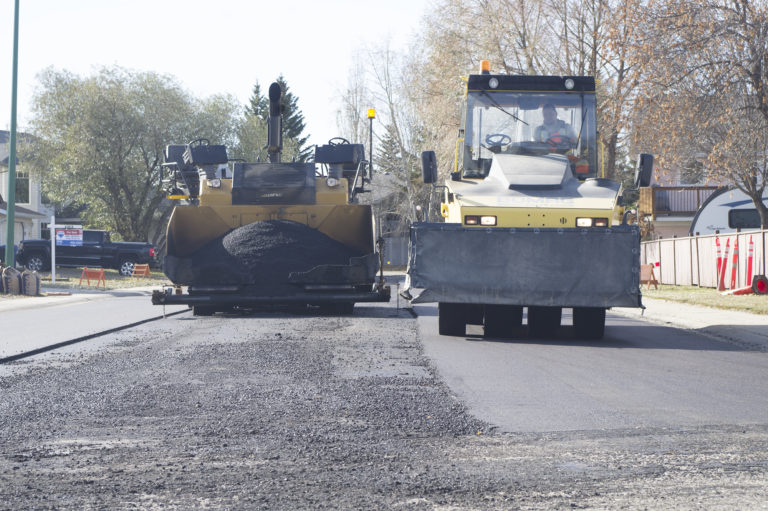
Prince Albert city councillors will have more influence in what streets get paved next year, but just how much influence is still up for debate.
Council passed a motion on Monday that allows individual councillors to make suggestions about which streets to pave in their ward, but ultimately leaves the decision up to administration.
The decision was a compromise from an earlier motion that would have seen each council pick one street for repaving instead of just suggest one.
Ward 1 Coun. Charlene Miller was responsible for bringing the motion forward on Monday. She said it’s not an ideal outcome, but there were still positives.
“I’m kind of disappointed, but it is what it is,” she said in an interview afterwards. “I guess we’ll continue to suggest.”
Miller said she’s been making suggestions about specific streets for years without any action. Thirteenth Street West is her biggest concern. City crews paved up to Eighth Street West this summer, but the rest of the street remains untouched, and Miller said conditions on it are brutal.
Since 2013, the City has invested around $4 million annually in its paving program, however Miller said she’s concerned too much of that money is being spent on major thoroughfares like Second Avenue West. She’d like to see more of that money spent in residential areas, especially since property owners are funding the program though a $189 base tax.
She’d rather see the city to use provincial funding from the Saskatchewan Urban Highway Connector program on major routes that connect highways, Second Avenue West being a prime example.
“It’s not that they don’t need it, but it’s our residents who are the ones who are paying for it,” she explained.
Those who supported the motion, like Ward 3 Coun. Evert Botha, said too many residential taxpayers aren’t getting enough back for their buck, especially those who live on unpaved streets.
Botha himself lives on an unpaved street, and while he likes it because it keeps traffic away, he said not all residents feel that way. He wants the city to take a more direct approach to addressing those concerns.
“We have avenues and streets in this city that haven’t been paved, and there always seems to be a policy that prevents action,” Botha said during an interview afterwards. “If you look at all the unpaved street, those should be prioritized because those properties have all been paying taxes … and they still don’t have a paved street.”
Most councillors were uncomfortable with councillors picking one street each year. Some, like Ward 5 Coun. Dennis Ogrodnick, said it was inappropriate for council to micromanage city departments in that way. Others felt it would turn an administrative process into a political one.
Miller’s amendment, which turned selections into suggestions, was well received by most, but not all. Ward 8 Coun. Ted Zurakowski was the most vocal critic. Although he sympathized with Miller’s frustration, he worried council members were getting involved in a process best left to administration.
“For us to get involved in cherry-picking streets in our own ward, it feels wrong to me,” Zurakowski said during Monday’s council meeting. “If further divides us as a community and divides us into our wards again. I’d much rather talk about a motion that connects us, a motion that unites us, and accomplishes what we’re really concerned about.”
Instead, Zurakowski said he rather see council discuss increasing the paving budget, to allow crews to move into residential areas, or perhaps pass a motion instructing admin to put all their money into residential areas.
Mayor Greg Dionne said he intends to do just that this fall. Dionne said starting this budget, he’ll recommend city admin focus solely on residential areas every other year.
“That’s out problem, we don’t seem to get to the residents because we’re doing the main thoroughfares where all the traffic is, but it’s those residents who are paying for the program,” Dionne said during the meeting. “I think we have to be even bolder and one year say, ‘enough of this. For this year—because we can do about 50 blocks—we move into the residential (areas). If we knocked off 50 residential blocks, our complaints would come down quite a bit.”
Currently, city administrators rank roadways on a Pavement Quality Index between zero and 100. A rating of 50 is considered passable. Roadways are also ranked based on their traffic volumes, and whether they run over underground utilities like water mains or sewer pipes.
In those cases, city crews may delay repairing a road until they can replace the underground pipes at the same time.
By the end of 2020, city crews will have paved 455 blocks of roadway since the paving program started in 2013.
